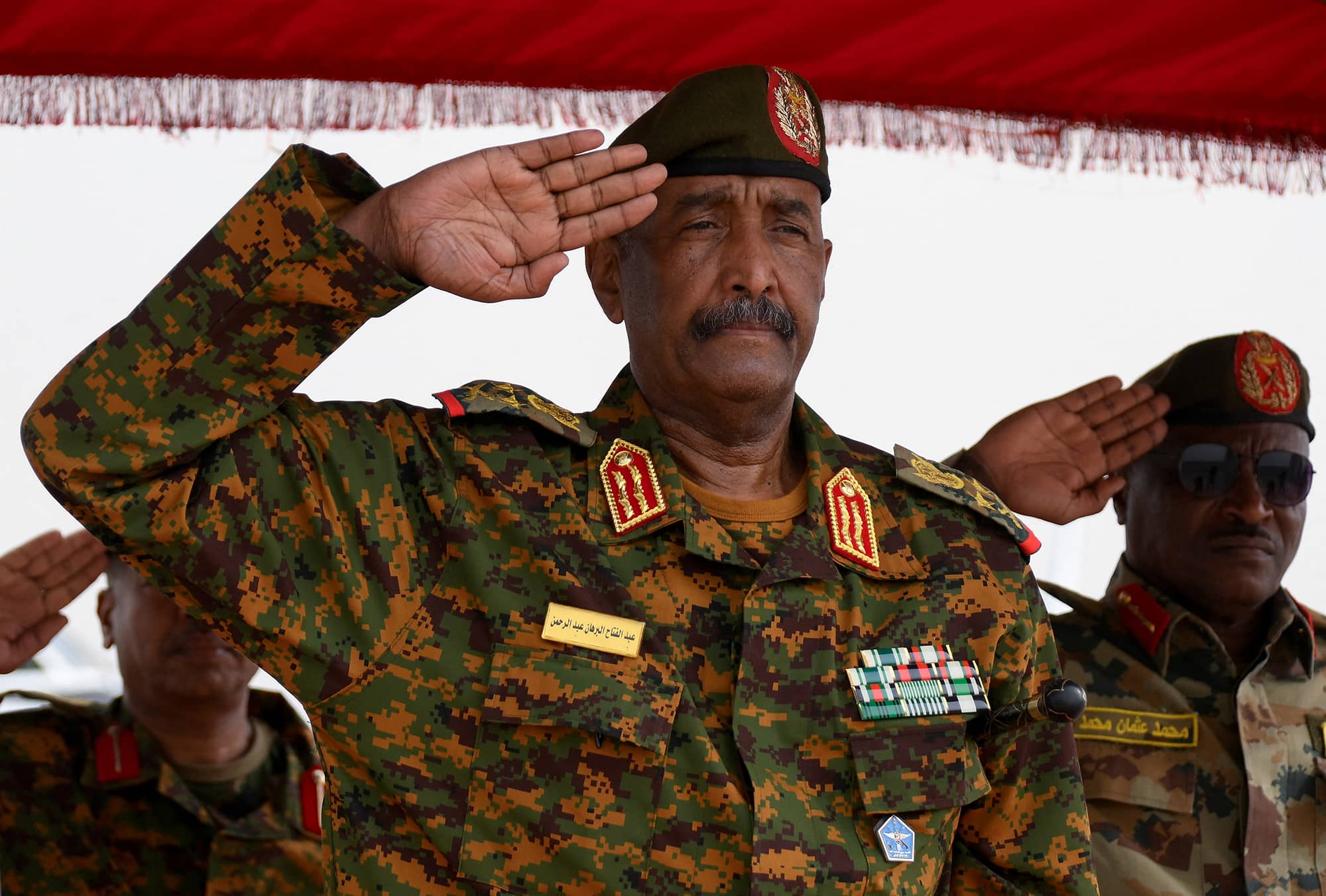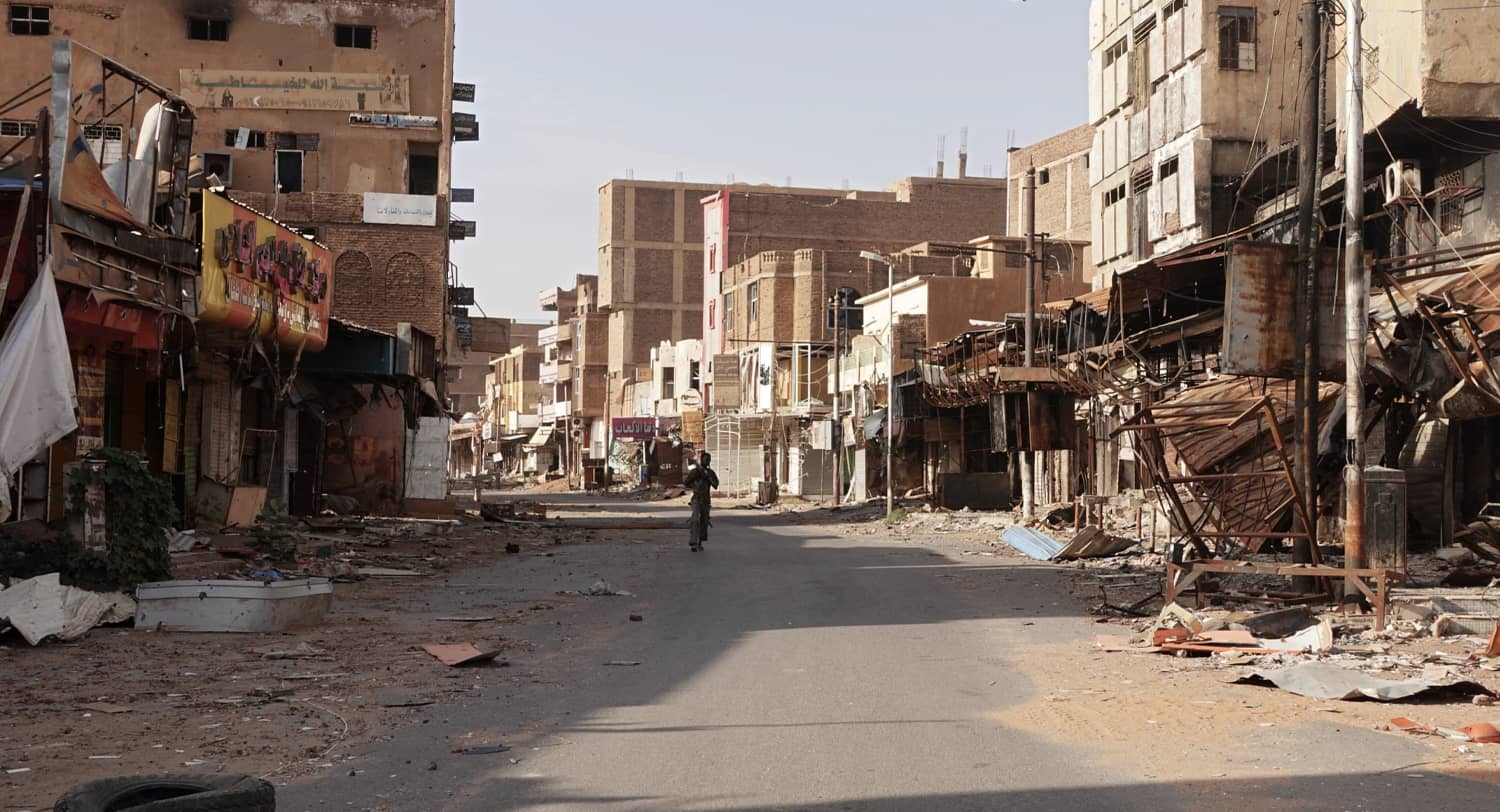Iran may be about to lose its ally Hamas, which Israel seeks to defeat. But is it also about to gain a new partner, Sudan, on the western side of the Red Sea?
Here we go again in Sudan. For decades the country experienced civil war and famine, triggered by religious conflicts and struggles for power between the center and the periphery, culminating 20 years ago in the government’s campaign of massacres targeting African ethnic groups in the rebellious province of Darfur.
There was a brief period of hope in 2018 – 2022 when Sudanese took to the streets to overthrow the military government of General Omar Bashir, who enjoyed the backing of international Islamists, including the Muslim Brotherhood. In October 2020, the transitional government even signed (but didn’t ratify) a normalization agreement with Israel. Since then, the country’s hopes for a peaceful transition to democracy have been dashed.
In April 2023, Sudan reverted to its bloody past as it became enmeshed in a fresh civil war—one that may well result in a fresh man-made famine. Sudan has a population of 49 million and 10 million have already been displaced. Malaria is on the rise. International aid is being stymied by both sides in the war.
The two rival factions have an interesting array of international support. The Sudanese Armed Forces (SAF), led by Abdel Fattah al-Burhan, have historical institutional links to military counterparts in Egypt and deep longstanding links to international Islamists; a widely respected Sudan expert told us the SAF is a cover for the Muslim Brotherhood. The paramilitary Rapid Support Forces (RSF), headed by Muhamad Hamdan Dagalo known as Hemedti, enjoy support from neighboring Chad, Ethiopia and the Tobruk-based Libyan National Army of Khalifa Haftar (who, just to complete the confused picture, is close to Egypt).
Now enters, or more accurately re-enters, Iran. For decades it supported the government of Omar Bashir until he was overthrown in 2018; Sudan was used as a go-between for Iranian arms smuggling to the Islamic Jihad in Gaza. During the current civil war, Iran offered advanced weapons to the Sudanese Armed Forces, reportedly in exchange for allowing an Iranian naval base on Sudan’s Red Sea Coast.
General al-Burhan initially turned down the Iranian offers of help, not wanting to anger the US government. But his enemy, Hemedti, has been winning of late, seizing in December 2023 the Gezira area of Sudan, the country’s “bread basket,” and sections of Khartoum. On the back foot, the Sudanese army began deploying Iranian drones in a bid to stem Hemedti’s advances.

According to Iranian sources, Sudan’s army began deploying Iranian-made military drones in January and have used them to re-take the city of Omdurman in March.
What is the US doing about Iran’s new role? Not much. The US ambassador to the UN, Linda Thomas-Greenfield, says she has encouraged other countries in the region to refrain from supporting either side in Sudan and to encourage Iran not to get involved.
On the humanitarian side, however, American officials are sounding alarms. Tom Perriello, the US special envoy for Sudan, told the Senate Foreign Relations Committee, “The default trajectory is towards famine, an increasingly factionalised state that brings in regional actors and presents enormous and unconscionable humanitarian costs. Driven by the conflict, the destruction of harvest, food shortages and the block of aid, nearly 80 million people [throughout the Horn of Africa] now face food insecurity.”
It is too early to conclude that Sudan has now moved into Iran’s orbit. First, this is not a classic “proxy war” fueled by outsiders. This is a fratricide with two bad actors going after each other (the SAF are hard-core Islamists while Hemedti’s RSF is based in the Janjaweed militia that massacred civilians in Darfur). They opportunistically use outsiders, creating unusual bedfellows (the Muslim Brotherhood, Iran and Egypt all support the SAF).
Furthermore, not every country that buys Iran’s drones becomes its proxy. For example, Ethiopian Prime Minister Abiy Ahmed also used Iranian drones in pushing back the Tigrayan rebels during the 2020-2022 Tigrayan war. But Abiy didn’t morph into Hizbullah.
Nevertheless, the US cannot be complacent about this latest Iranian encroachment. Iran uses pragmatic tactics to pursue extreme goals. It partners with a rival Shi’ite sect (the Zaydis) in Yemen and with a militant Sunni Muslim Brotherhood offshoot in Gaza (while helping Syria’s regime to destroy others). It is driven more by Iranian nationalistic interests than by Shi’ite religious zeal. But those interests do involve the goals of destroying the region’s only democracy, Israel. And building up the Muslim Brotherhood in Sudan can further Iran’s anti-Western goal.
For both humanitarian and strategic reasons, the US cannot afford to remain aloof from this civil war. Sudan is located on the coast of the Red Sea, opposite Yemen, where Tehran has bankrolled and armed the Houthis in their ferocious struggle against Saudi Arabia and the West. Sudan was once a terrorist haven, threatening Egypt and Israel. Allowing al-Burhan to prevail risks a return of both Iranian influence and Islamist terrorism.
Sudan is not just in trouble. It’s in crisis. The US should lead the international community in resolving the civil war and containing Iran’s influence in Sudan.

